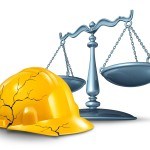A.M. Best Co. has affirmed the financial strength rating of A+ (Superior) of HSBC Medical Insurance Limited, Hong Kong. The outlook is stable.
The rating reflects HSBC Medical’s leadership position in the group medical insurance sector, competitive underwriting performance, strong liquidity and prudent reserving practices. The rating also benefits from its status as a core subsidiary of the HSBC insurance group, whose marketing and operational support are critical to the company’s long-term success.
Through product innovation, HSBC Medical has maintained its position as the largest insurer in Hong Kong’s accident and health market. Its market share, as measured by gross premiums written, stood at 10.5 percent at year-end 2001. There is a high degree of operational synergy between HSBC Medical and other fellow subsidiaries. The cost savings, information exchange and cross-marketing have provided HSBC Medical with relative competitive advantages over other medical and health insurers.
Despite having an above-average loss ratio, HSBC Medical has managed to stay competitive by tightly managing its expense level. The expense ratio of 11.3 percent is considerably better than the market average of 16.6 percent, resulting in its combined ratio comparing favorably with its closest competitors.
As of the end of 2001, 72 percent of the asset portfolio is accounted for by cash and cash equivalents, which are mostly held in call deposits or time deposits maturing in less than three months. The quick liquidity ratio averages 145.6 percent from 1999 to 2001, and operating cash flows have been maintained at healthy levels.
Given the nature of its medical claims, its current reserving methodology has historically produced accurate measures of IBNR. The stability in the loss reserves to net premiums earned ratio also demonstrates the consistency in reserve developments. The company is further protected by an excess of loss cover.
Offsetting factors include the company’s modest capitalization on a stand-alone basis, low investment yields and uncertain short-term growth prospects.
The Best’s Capital Adequacy Ratio (BCAR), which measures the strength of risk-adjusted capital, indicates that the company is less capitalized than other HSBC insurance subsidiaries. Net premium leverage, adjusted for non-risk premiums, stood at 2.67 times at the end of 2001. The ability to generate internal growth in capital and surplus is limited by the parent’s dividend requirements.
Since the company invests only in short-term instruments, investments generate yields that closely match the short-term deposits, which are expected to remain low in 2003. This will have an adverse impact on earnings in the near term. Furthermore, growth prospects in the group medical segment will be dampened by a prolonged recession. Corporate downsizing and reduction in benefits will lead to lower than expected premium income.
Was this article valuable?
Here are more articles you may enjoy.

 EVs Head for Junkyard as Mechanic Shortage Inflates Repair Costs
EVs Head for Junkyard as Mechanic Shortage Inflates Repair Costs  Justice Department Preparing Ticketmaster Antitrust Lawsuit
Justice Department Preparing Ticketmaster Antitrust Lawsuit  Hawaiian Electric Hits 40-Year Low Ahead of Maui Fire Report
Hawaiian Electric Hits 40-Year Low Ahead of Maui Fire Report  SC High Court Strikes ‘Troubling’ Denial of Comp Claim, Says Can’t Be Based on Stats
SC High Court Strikes ‘Troubling’ Denial of Comp Claim, Says Can’t Be Based on Stats 